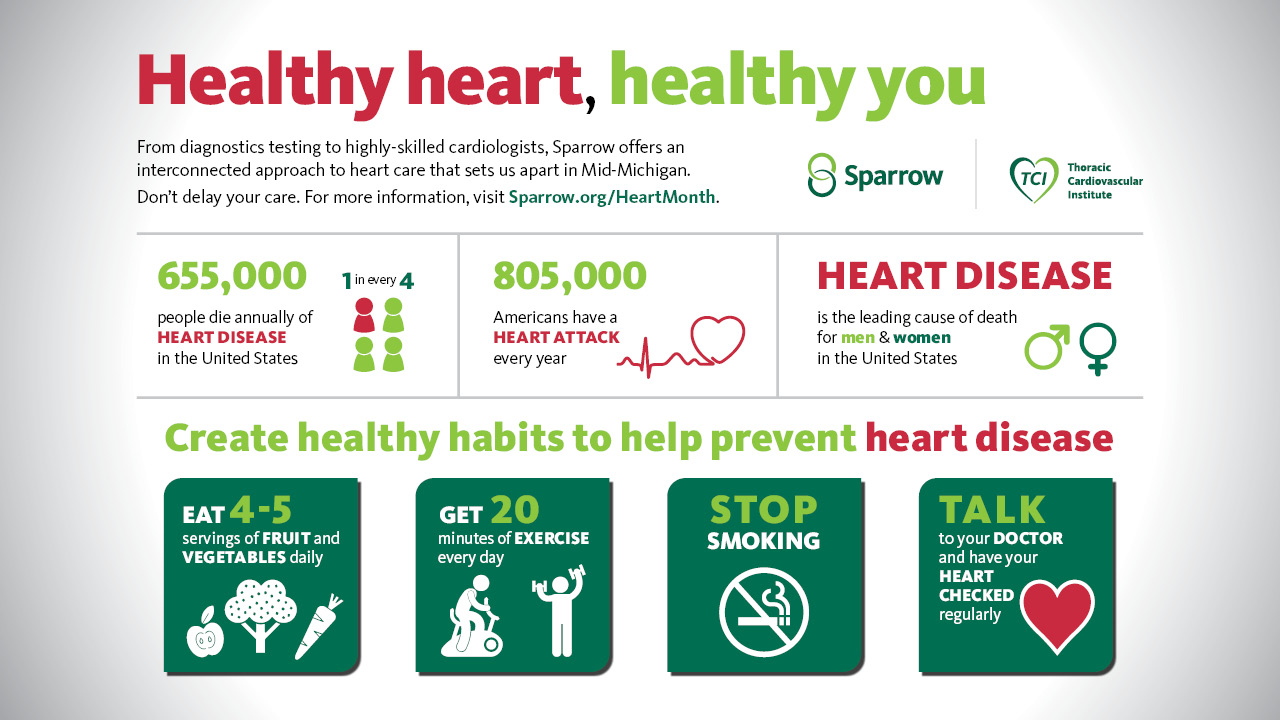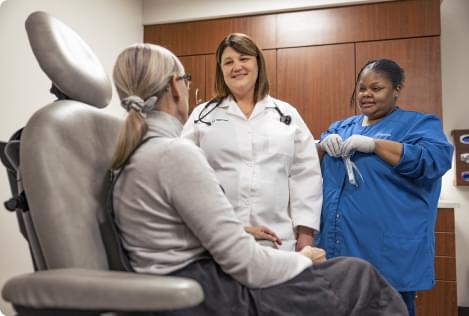Published: February 19, 2024

February is well known as National Heart Health month across the country, so it is fitting to bring attention to our hardest working muscle. Humans have over 650 muscles throughout their body. While all our muscles have essential functions, the heart is literally the core of our existence.
Did you know that heart disease remains the leading cause of death in the United States? About 695,000 people in the U.S. die from heart disease each year, about one in five deaths, according to the Centers for Disease Control and Prevention (CDC).
"Heart disease is more common in people aged 60 and older, however it may begin much earlier in life,” says Matthew Wilcox, D.O. “Cardiovascular disease affects more than 35 percent of people aged 39 and older, and more than 10 percent of those age 20 to 39. This is why a heart-healthy lifestyle is so important at every age."
20s to 30s:
- Establish a relationship with a primary care provider. Even if you are perfectly healthy, routine wellness exams and screenings are important.
- Know your family's health history. Be aware of high blood pressure, heart disease, diabetes, or other chronic illness within your genetics. Speak with your primary care provider about proactively monitoring these things.
- Don’t smoke. If you are smoking, or vaping, quit now. Even exposure to secondhand smoke poses serious health hazards. This is arguably the most important thing you can do to reduce your risk of heart disease. Despite anti-smoking efforts, the largest growing population of smokers is individuals 18 and younger.
- Exercise regularly. Whether walking, participating in sports, resistance training or other activities, movement helps to keep us healthier and happier.
- Implement stress management techniques. As we take on greater responsibility in our family or career, stress levels may increase, which may contribute to your risk for heart disease. Try things such as spending time in nature, journaling, or deep breathing to help decrease stress levels.
40s to 50s:
- Cardiovascular and strength training workouts. While it’s tough to work in the time for exercise amid daily living, it is a necessity to well-being. Regular exercise reduces stress levels, helps regulate body weight and more. Try making it part of your routine to do at least 30 minutes of moderate physical activity four to five days a week, or every day.
- See a primary care provider, annually. Even if you feel fine, proactive exams and screenings may be vital to your well-being. Do not wait until it’s too late.
- Learn the warning signs of heart attack and stroke. Women tend to have more subtle symptoms, whereas men may have more severe symptoms.
- Women, discuss hormonal changes with your physician. As women approach menopause their risk of heart disease increases. Be sure to discuss the effects on your heart health.
60s and older:
- Ask your primary care provider about an ankle-brachial index test. This test assesses the pulses in feet to help diagnose peripheral artery disease (PAD), a lesser-known heart disease in which plaque builds in the leg arteries.
- Watch your weight. Metabolism tends to slow with age, so our bodies require fewer calories. Excess weight makes our heart work harder and increases our risk. Making changes to what, and how much, we eat may help.
- You are not ‘too old’ to exercise. Individuals who stay active and connected to their communities tend to age healthier than those who are sedentary and isolated. Injuries and falls are often common in this age group so activities may be modified but there is no reason to stop.
###
Sparrow is Mid-Michigan’s premier healthcare organization and includes hospitals in Lansing, Carson City, Charlotte, Ionia and St. John, as well as Sparrow Specialty Hospital, Sparrow Care Network, Sparrow Medical Group, the Michigan Athletic Club, and AL!VE. Sparrow is part of University of Michigan Health. Through the dedication of our 10,000 caregivers, Sparrow pursues a vision to be nationally recognized as a leader in quality and patient experience. For more information, Sparrow.org.


